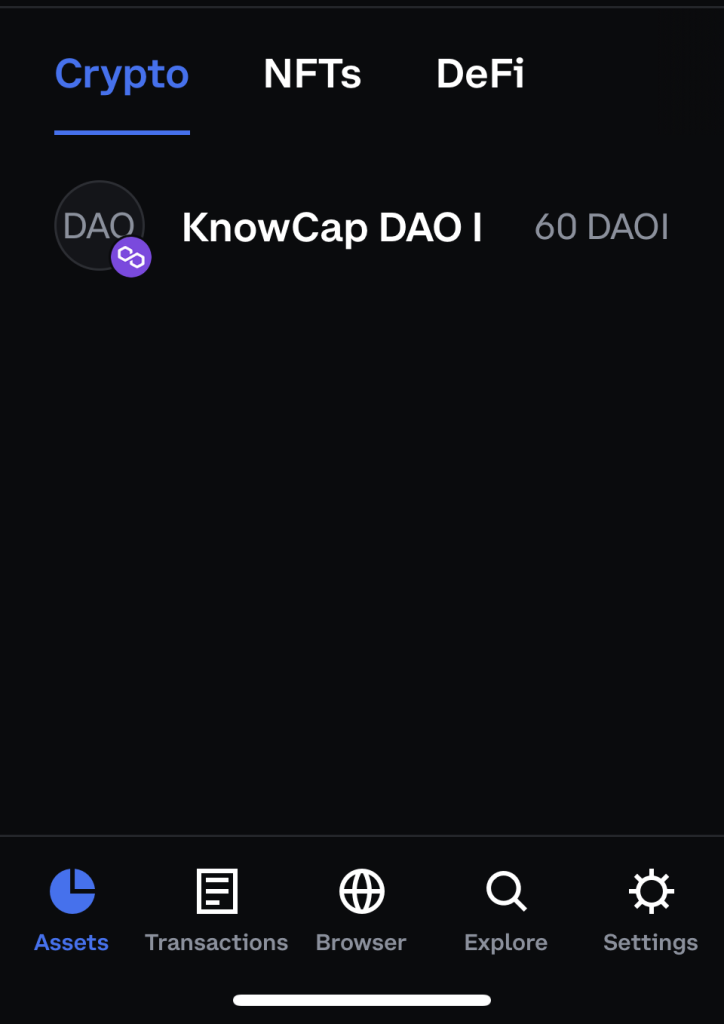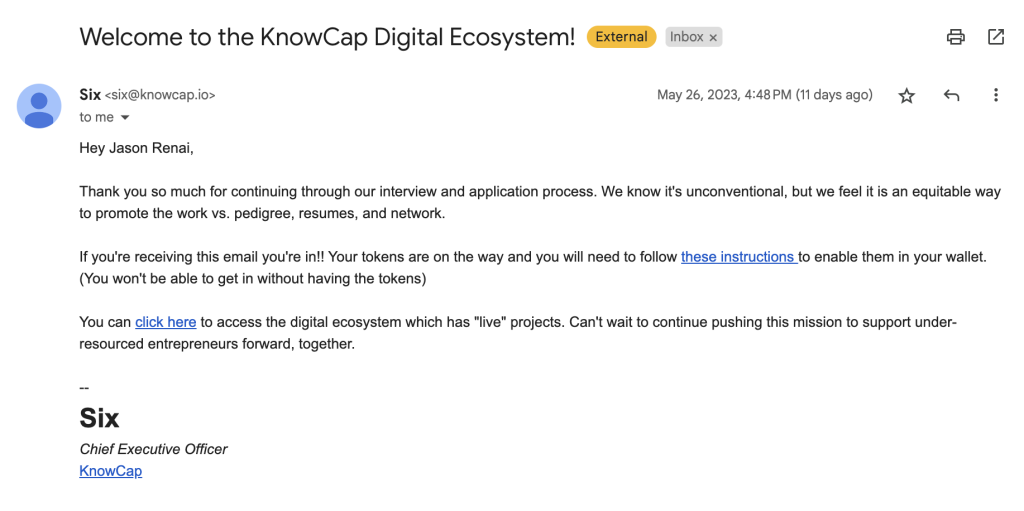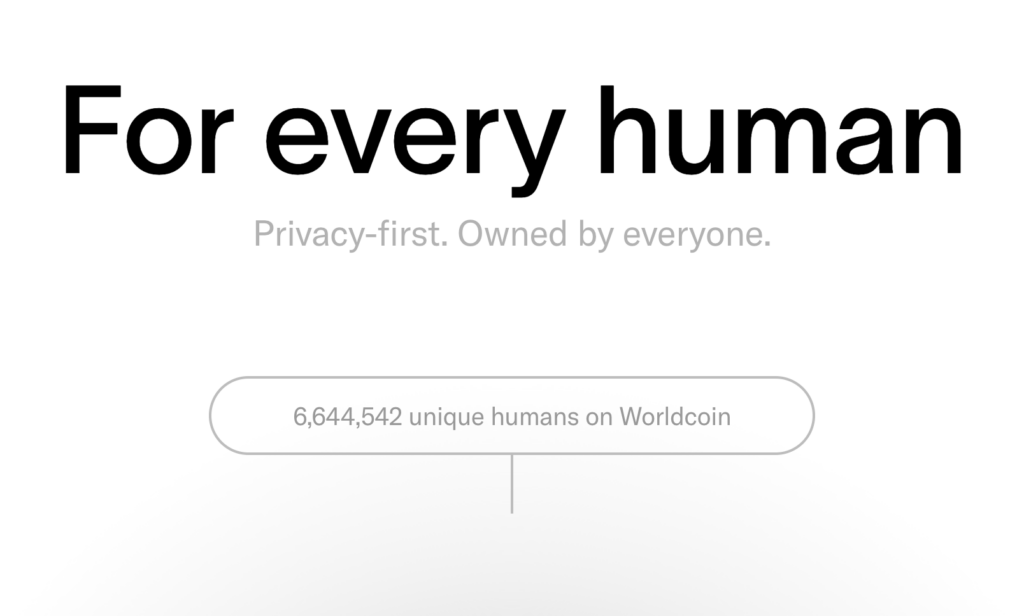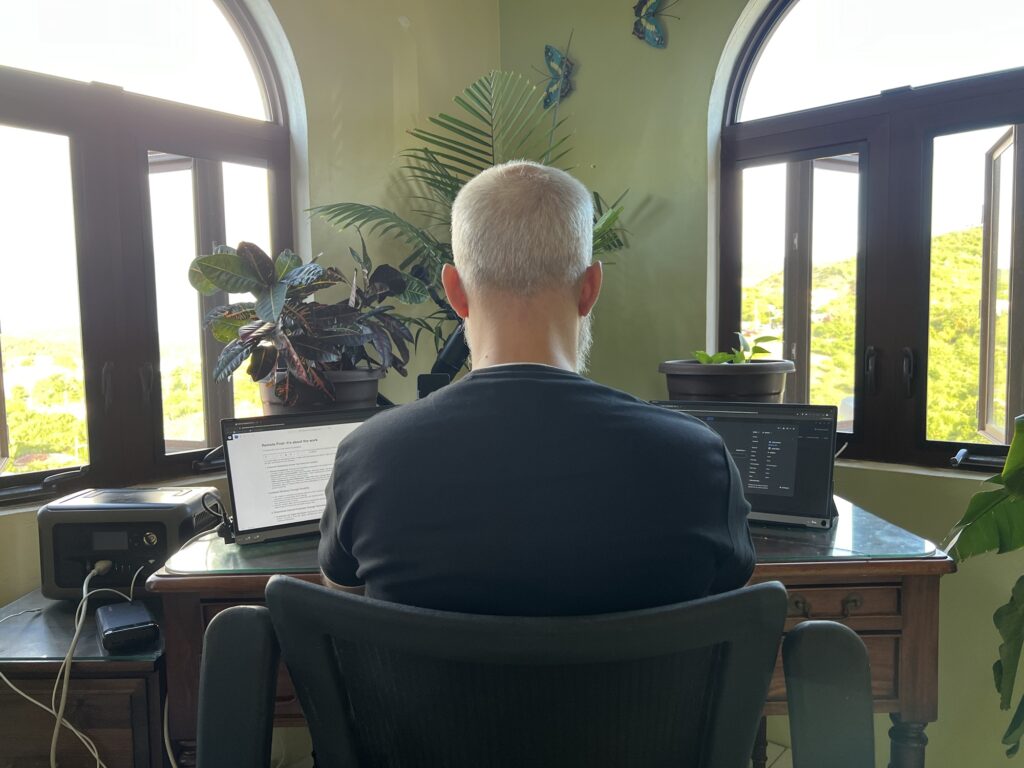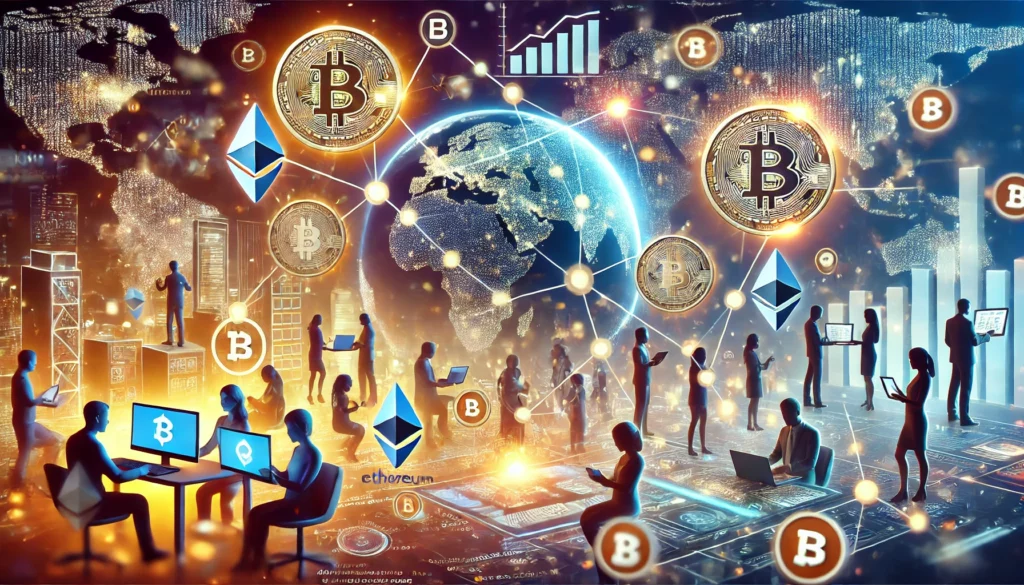Welcome to Knowcap!
I'm excited to be a small part of crypto's future by becoming part of the Knowcap.io DAO, a digital ecosystem that connects ambitious founders with world-class experts. The application process was arduous but it promotes the work vs. the pedigree, resumes, and networks typically used by hiring managers.

Gone are the "tell us about a time at a previous job" prompts and generic interview questions. In is a breath of fresh air talking about real-world tasks, organized in Clarity.so, and demonstrating your ability to successfully complete them. The task I chose to earn my tokens was a UX redesign for Omnicourse completed in Adobe XD.
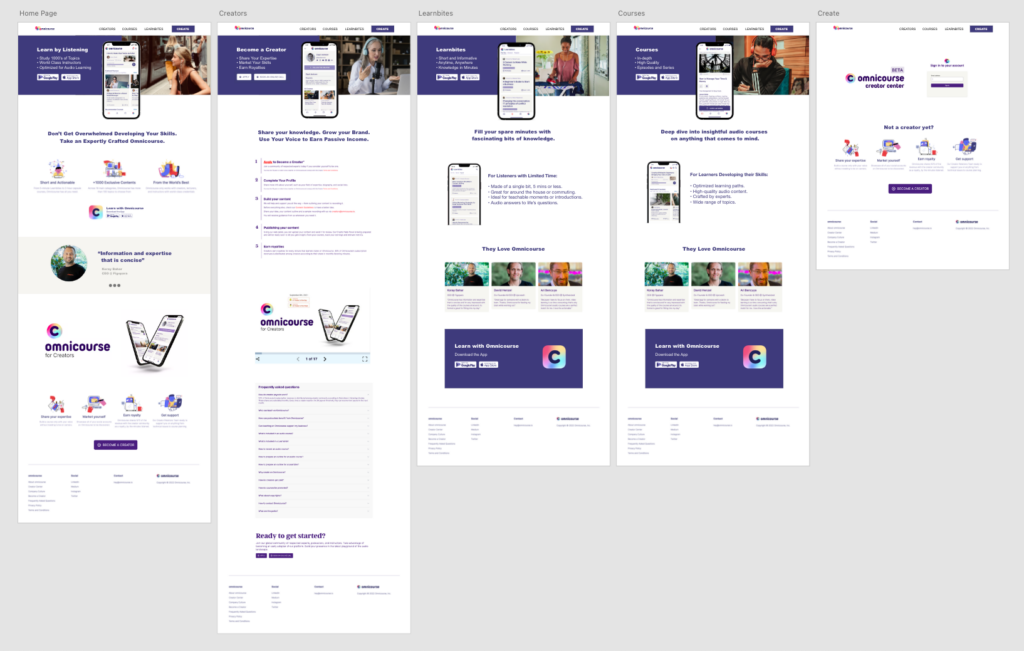
What is a Decentralized Autonomous Organization DAO?
A DAO, which stands for Decentralized Autonomous Organization, is an organizational structure that operates on a blockchain network. It is designed to be self-governing and operates based on smart contracts and consensus mechanisms rather than relying on traditional hierarchical structures or centralized control.
In a DAO, decision-making processes, governance rules, and operations are typically encoded in smart contracts that are executed on a blockchain platform, such as Ethereum. The participants of a DAO, often referred to as token holders or members, have the ability to propose and vote on various actions, policies, or investments within the organization.
The primary goal of a DAO is to create a transparent and decentralized system where decisions are made collectively by its members. The use of blockchain technology ensures that these decisions are recorded immutably and executed automatically based on predetermined rules.
DAOs can be utilized in various contexts, such as decentralized finance (DeFi), governance of blockchain protocols, crowdfunding, and community-driven projects. They enable individuals from around the world to participate in decision-making processes and share ownership in a decentralized manner, potentially removing the need for intermediaries or centralized authorities.
What are DAO contributor apps?
DAO contributor apps are applications or platforms that facilitate the participation of individuals as contributors to a Decentralized Autonomous Organization (DAO). These apps are designed to streamline the process of contributing to and engaging with a DAO, allowing individuals to actively participate in the decision-making and governance of the organization.
DAO contributor apps typically provide a user-friendly interface that allow users to interact with the DAO's smart contracts and participate in various activities. These activities may include voting on proposals, submitting proposals for consideration, staking tokens, earning rewards, and accessing relevant information and analytics about the DAO's operations.
The specific features and functionalities of DAO contributor apps may vary depending on the design and purpose of the DAO. Some apps may provide additional tools for collaboration, discussion forums, or reputation systems to incentivize and reward active contributors. These apps aim to make the DAO ecosystem more accessible and user-friendly, encouraging broader participation and engagement from individuals interested in the DAO's mission or activities.
Overall, DAO contributor apps play a crucial role in enabling individuals to actively participate in the governance and decision-making processes of DAOs, empowering decentralized communities to collectively shape the direction and operations of the organization.
What is Clarity.so
Clarity is a supercharged, web3 native contribution platform for collaboration and discussion, sprinkled with NFT gating and on-chain rewards. It uses Sign-in with Ethereum and token-based permissions to write docs, manage projects, and organize knowledge with bidirectional links. It is full of features that empower small groups, enable cross-group coordination, and help onboard new contributors. To receive tokens, and be granted the token-based permissions, a wallet needs to be connected to Clarity.
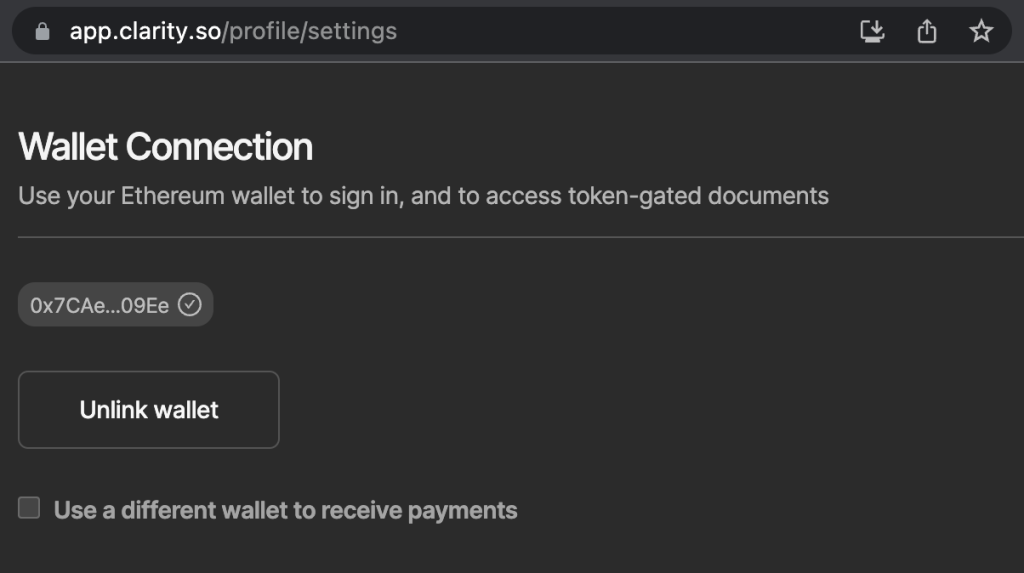
I used Coinbase wallet on my iPhone. Once the wallet is linked, tokens can be received and permissions are granted.
